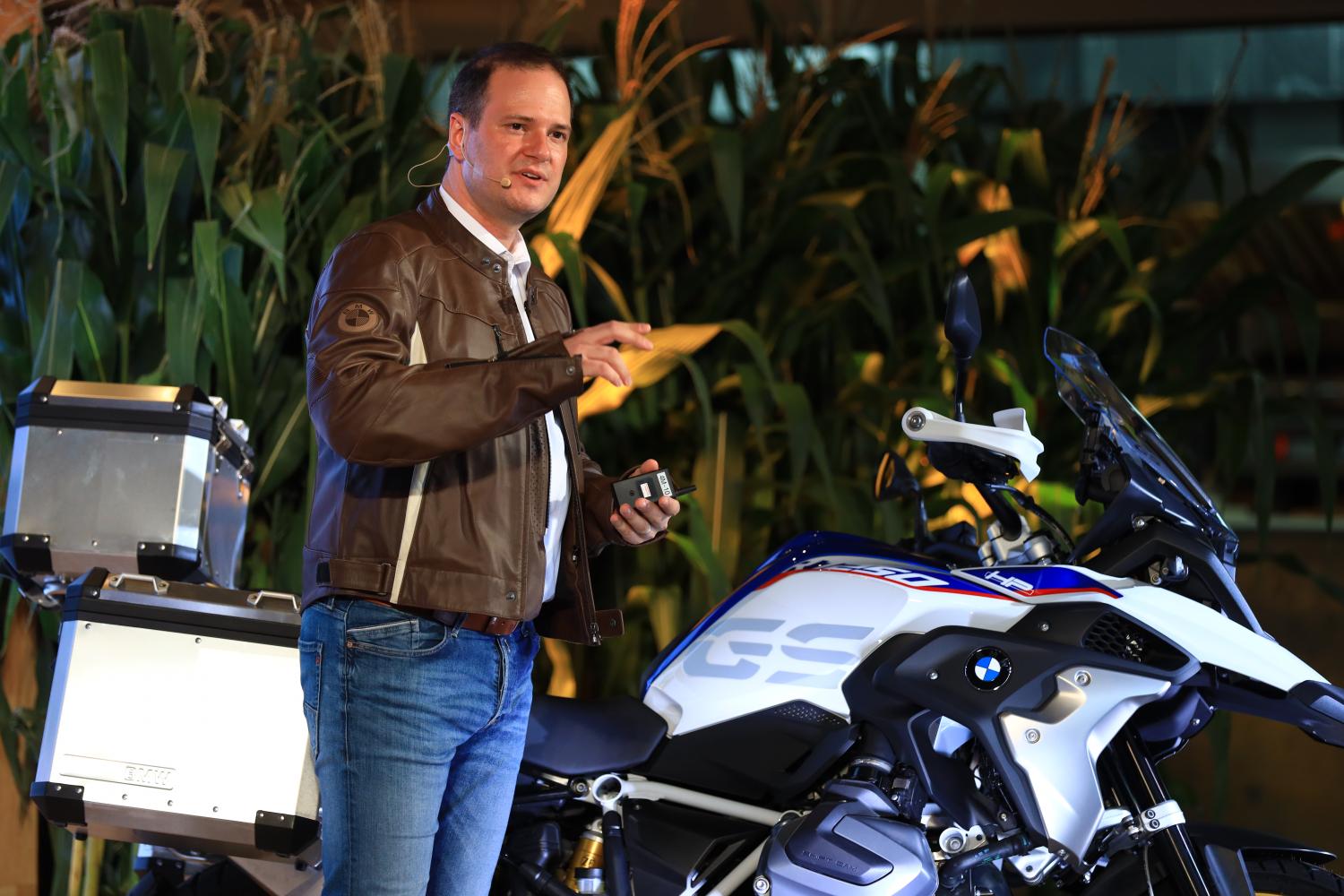
As the excise tax for motorcycles will increase from January 2020, demand is expected to rise in the second half of this year, says BMW Motorrad, the German motorcycle maker.
Christian Samlowski, the new head of BMW Motorrad Thailand, said the remainder of 2019 offers potential for buyers before the prices change next year.
In mid-May, the cabinet approved a new calculation for the motorcycle excise tax, shifting from engine size to CO2 emissions, effective in early 2020.
Electric and fuel-based motorcycles releasing emissions of less than 10 grammes per kilometre will be taxed at 1%.
Fuel-based or hybrid motorcycles with CO2 emissions of 10-50 g/km will be taxed at 3%, 51-90g/km at 5%, 91-130g/km at 9% and more than 130g/km at 18%.
Compared with the existing structure, the new tax rate will increase 0.5-1% in every segment to be passed on to the retail price tag.
This move is in line with the excise tax for cars, calculated based on CO2 emissions, effective in early 2016.
Mr Samlowski said BMW is willing to comply with the new tax regime, but the current process is under BMW's internal discussion and evaluation before making an announcement in the future.
"We understand the government's efforts to reduce CO2 emissions in the country in line with environmental development in other countries," he said. "BMW has already improved the emission standard for Euro 4, while the government's requirement is now at Euro 3."
He said the new tax regime will entail a measure to put an eco-sticker on each motorcycle, similar to the car measures, and BMW is working with the relevant authority together with other motorcycle manufacturers and distributors.
"The eco-sticker is a good move in a bid to inform buyers and customers about the specifications, emissions and fuel consumption of each motorbike," Mr Samlowski said.
In order for BMW's manufacturing facility in Rayong to comply with the new tax regime, Mr Samlowski said it will depend on new technologies from the parent operations of BMW Motorrad in Berlin and Munich to be applied to facilities worldwide, including the Rayong plant.
Separately, BMW Motorrad reported that the Thai unit posted 650 motorcycles sold in the first half of 2019, but sales dropped in line with the overall big bike market, totalling 15,800 registered units above 400cc, a 3% drop.
"It was no surprise for BMW because many brands have suffered many difficulties from January to June, such as the Thai economic downturn, low purchasing power and the big bike market saturation," Mr Samlowski said.
"Although our above-500cc deliveries fell in the first half, BMW Motorrad's 250-399cc segment performed very well for four models: C400X, C400GT, G310R and G310GS."